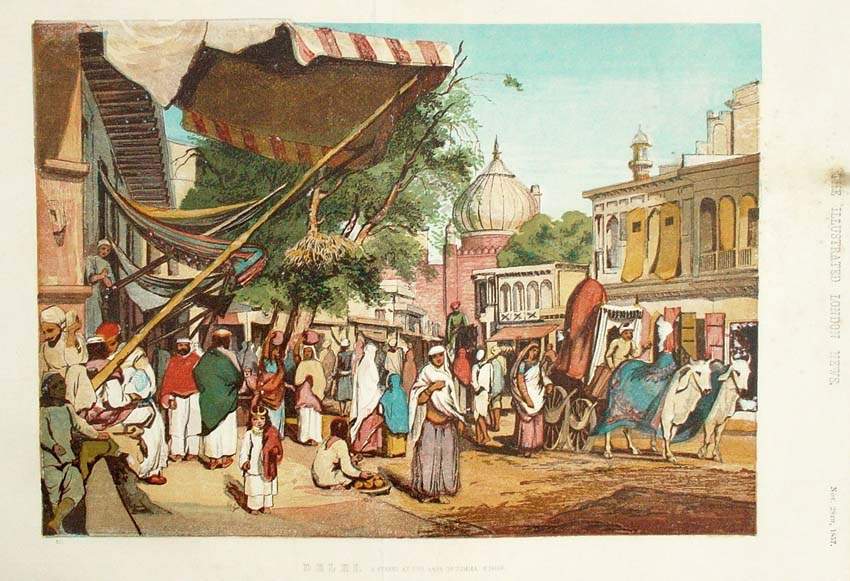FWP:
SETS == EXCLAMATION
MADNESS: {14,3}
The really provocative question, the unanswered and unanswerable one, is just why the dwellers in the beloved's street are being enjoined to look out for Ghalib. One obvious scenario: 'He's a sick man, he needs care, he's wandered off somewhere, if you see him be sure to let us know, so we can get help for him'. Another, of course: 'Watch out, he's a wild man-- he rips his clothes off, he's drunk all the time, he's quite mad, who knows how he might behave toward you?' The maximally inshāʾiyah structure of the verse gives us not a clue as to how to choose between them; and of course, they're not mutually exclusive.
As Bekhud Mohani points out, no matter what his condition, the one sure thing is that sooner or later he'll turn up in the beloved's street. Bekhud Dihlavi does a Sufi-path reading, but there aren't any special grounds for it.
For another look at the 'disordered head', see {201,9}.

Nazm:
The utterance is, if you happen to run into Ghalib there, then look out for him. And the meaning is, keep in mind that Ghalib might perhaps be there. Because of jo , this meaning does not emerge from the utterance. The word jo makes it conditional, and the conditional is not intended. [Further discussion of this in terms of Urdu grammar.] (172)
== Nazm page 172